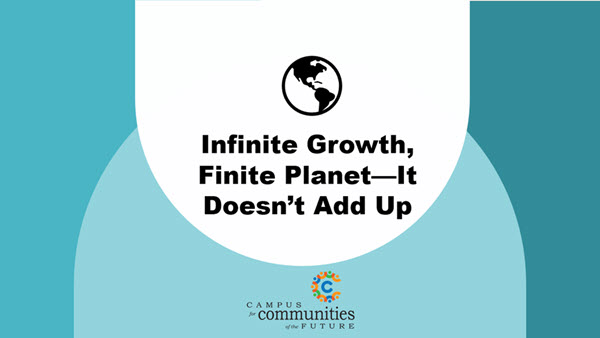Infinite Growth, Finite Planet—It Doesn’t Add Up

Here’s what we know. Suppose current growth rates continue without major policy or systemic change. In that case, most scientific projections suggest that within 30 years, humanity will consume as much energy and material as all of previous human history combined.
It would be comforting to dismiss this as exaggeration, but as the deep-thinking podcaster Nate Hagens reminded audiences at the recent Victoria Forum, “Infinite growth on a finite planet is impossible”.
Our “buy now, pay later” culture persists, investing heavily in the traditional economy—especially oil and gas—while overlooking the risks. Instead, more capital should flow into renewable alternatives like solar, wind, and hydropower, alongside emerging options such as nuclear, geothermal, biofuels, and marine energy. The deeper issue, however, is our enduring unwillingness to confront global overconsumption directly.
The late economist Mancur Olson, in his seminal book “The Rise and Decline of Nations,” argued that prolonged political stability often breeds powerful special interest groups, which pursue their own narrow agendas while eroding prosperity and blocking innovation. In Canada, some of the most influential include:
• Business Council of Canada – Represents CEOs of the largest corporations, lobbying on fiscal, trade, and economic policy.
• Canadian Association of Petroleum Producers (CAPP) – The dominant voice of oil and gas, shaping energy and climate policy.
• Canadian Canola Growers Association – Influential in agricultural trade and regulation.
• Federation of Canadian Municipalities (FCM) – Represents cities and towns, shaping infrastructure and municipal funding debates.
• Canadian Vehicle Manufacturers’ Association – Key in automotive, trade, and environmental standards.
As Olson’s framework suggests, these groups act in self-interest and are unlikely to drive solutions to shared problems like overconsumption. Reducing consumption benefits everyone broadly but offers no strategic advantage to any specific group. This dynamic fosters inaction: organizations and individuals enjoy present gains, while others bear the future costs.
This points to a critical need: the highest-return investment may be in developing leaders who can catalyze systemic change. Leadership is essential because failing to invest in long-term transformation—especially when disruption is accelerating faster than ever—represents poor strategy and a profound lack of vision.
Reversing overconsumption requires leaders who can imagine, articulate, and mobilize toward a radically different future rooted in ecological limits and shared prosperity. When nations or cities resist change, innovation often shifts elsewhere—to places more adaptive and open to transformation.
History illustrates this dynamic. After World War II, England—despite conditions seemingly ripe for renewal—saw entrenched interests stifle innovation through bureaucracy and self-preservation. Progress slowed, and the nation lost its global economic leadership. By contrast, the U.S., Japan, and Germany emerged from the war with weakened coalitions and fewer gatekeepers, which created space for bold new ideas and rapid innovation.
This is not unique to England. Many large organizations and economies spend more effort defending the status quo than creating the future. Too often, only significant disruption clears the way for renewal.
To avoid repeating this cycle, we must reduce the disproportionate influence of entrenched interests and strengthen the pipeline between grassroots and grasstops. Only then can we ensure approaches that are regenerative, inclusive, and aligned with planetary limits and community well-being—precisely what is needed to confront overconsumption at every level.
Posted on 09-11-25Next entry: Will They Wrap Their Arms Around New Knowledge?
Previous entry: From Complexity to Clarity

 Brenda Herchmer is the owner of Grassroots Enterprises, a community development consulting company.
Brenda Herchmer is the owner of Grassroots Enterprises, a community development consulting company.